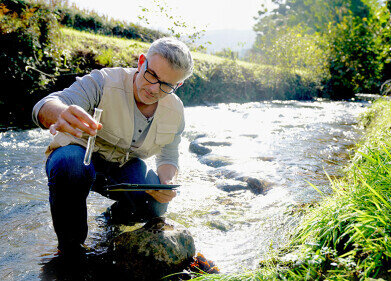Environmental Laboratory
DNA Barcoding Finds Endangered Shark in UK Fish and Chips
Feb 13 2019
A new report from the University of Exeter has discovered traces of endangered shark in food samples taken from fishmongers and takeaways in the UK. Given that many shark species are in decline and have seen their sale restricted as a result, the researchers tested samples from 90 different retailers across the south of England to verify if the regulations were working.
The results, published in the journal Scientific Reports, found almost 80 samples of spiny dogfish (Squalus acanthias), a species of shark that is listed as critically-endangered in the North Atlantic Ocean. The news is concerning for environmentalists and those worried about contamination, since it is demonstrably impossible for consumers to know exactly what they are buying in many outlets.
The plight of the shark
Sharks, along with rays and skates, belong to the elasmobranch family of fish, which is one of the most critically-endangered groups of vertebrates on the planet; at present, almost 25% of all elasmobranchs are at risk of extinction. The declining populations have been partially caused by toxins such as mercury and microplastics being consumed by the sharks, but mostly by overexploitation from human hunters.
As a result, the UK government and the EU have both enacted restrictions on sales of shark in a commercial setting. Fishing for spiny dogfish, for example, was outlawed in EU waters until 2011, and even now fishermen are only allowed to sell the species as “bycatch” (in other words, when it is caught in nets that are primarily aimed at other species of fish).
A concerning study
Keen to test how well such laws were working, researchers from the University of Exeter used DNA barcoding to determine whether shark was still being sold in UK fish and chip shops. They took 117 samples from 90 different outlets, 78 of which were from takeaways and 39 of which came from fishmongers.
The results showed almost 80 samples of spiny dogfish in the food, as well as fins of other endangered species such as scalloped hammerheads, smalleye hammerheads and shortfin mako. Meanwhile, there was an abundance of other shark species as well, including starry smoothhounds, nursehounds and blue sharks. These samples were not listed under those denominations, but rather generic titles such as rock, flake and huss, demonstrating that consumers are not free to make informed decisions about their purchases.
Due diligence all but impossible
“It’s almost impossible for consumers to know what they are buying. People might think they’re getting a sustainably sourced product when they’re actually buying a threatened species,” explained Catherine Hobbs, lead author on the paper.
Meanwhile, the problems don’t stop at sustainability. Hobbs went on to point out that “[t]here are also health issues. Knowing what species you are buying could be important in terms of allergies, toxins, mercury content and the growing concern over microplastics in the marine food chain.”
Digital Edition
IET 34.2 March 2024
April 2024
Gas Detection - Biogas batch fermentation system for laboratory use with automatic gas analysis in real time Water/Wastewater - Upcycling sensors for sustainable nature management - Prist...
View all digital editions
Events
Apr 30 2024 Melbourne, Australia
Apr 30 2024 Birmingham, UK
May 03 2024 Seoul, South Korea
May 05 2024 Seville, Spain
May 06 2024 Minneapolis, MN, USA


















